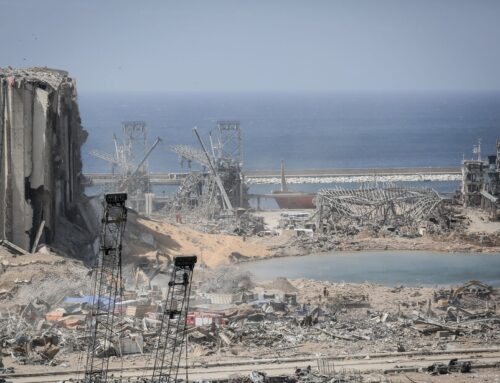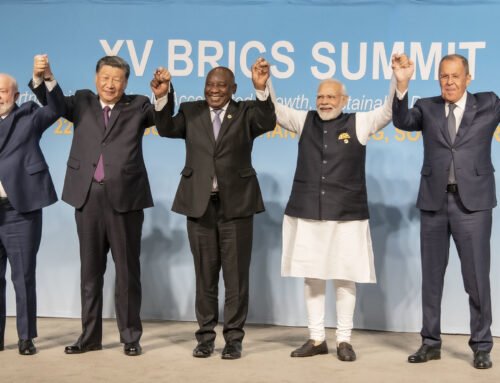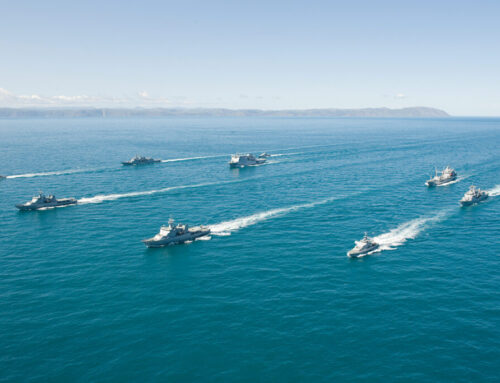europe-2696543_1280
Autor foto: Domena publiczna
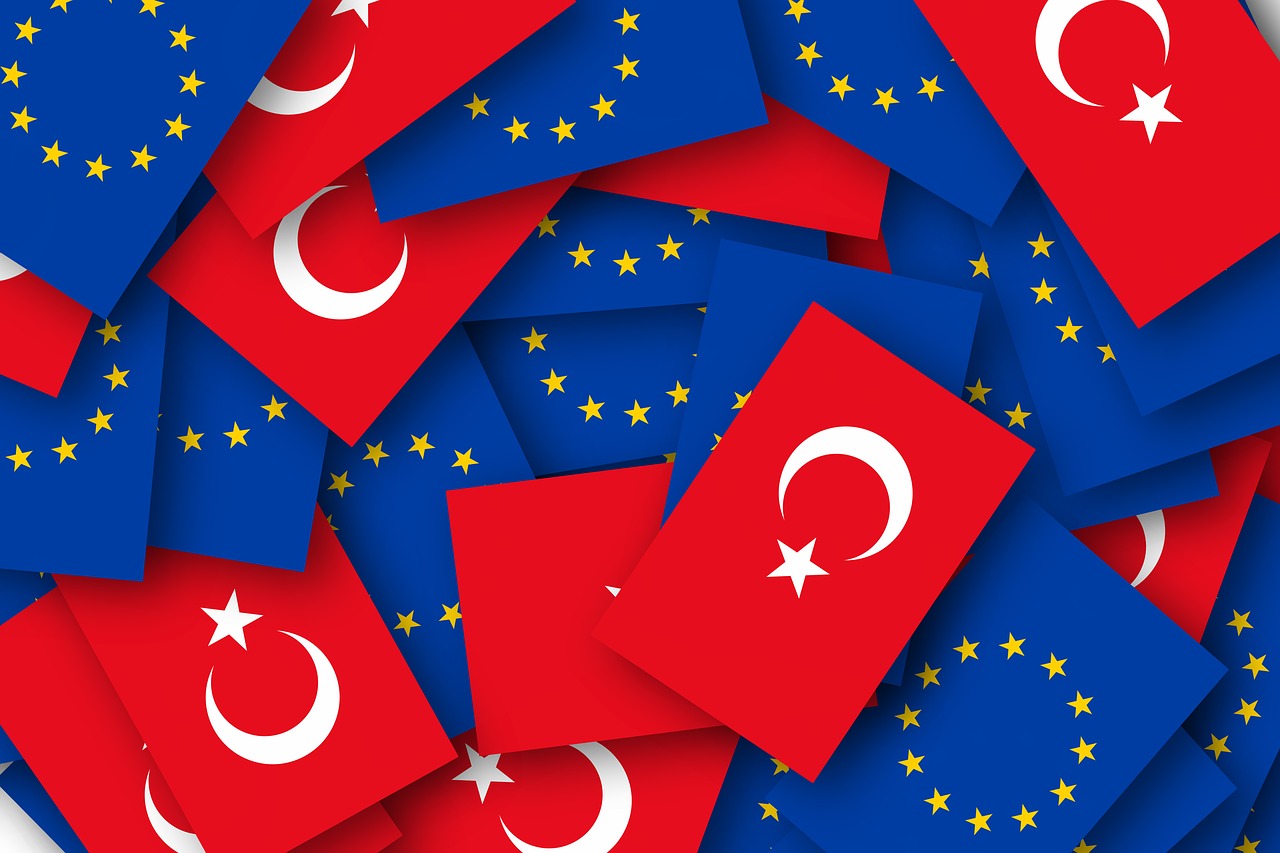
Turkey’s prospects for European Union membership
March 20, 2024
Author: Karolina Wanda Olszowska
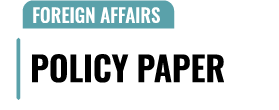



europe-2696543_1280
Autor foto: Domena publiczna
Turkey’s prospects for European Union membership
Author: Karolina Wanda Olszowska
Published: March 20, 2024
Pulaski Policy Paper no.6, 20th of March 2024
During a speech to the Turkish Grand National Assembly in December 2023, Foreign Minister Hakan Fidan indicated that Turkey is determined to accelerate the integration process with the European Unio but that EU countries must also show that they care by making gestures of encouragement, as to other candidate countries[1]. This is an essential statement because, although the accession process is asymmetrical and it is the EU that sets conditions that candidate countries (in this case Turkey) must meet, prolonging negotiations without any idea of working out a different formula for cooperation contributes to Turkey’s dissatisfaction and hinders mutual relations. Turkey’s relations with the European Union, as with the West as a whole, have gone through various phases in recent years, from interest-based cooperation to rivalry and even sanctions. The economic crisis escalated in 2021, forcing Ankara to change its foreign policy to a more balanced and cooperative one – especially in the financial dimension. These changes are worth looking into, as finding a new way of arranging relations may resolve the suspension in negotiations between Turkey and the EU.
Turkey was granted candidate status to the European Union in 1999 and began accession negotiations with it in 2005 after long and difficult talks. It is worth noting that in 2002, the Justice and Development Party (AKP) won the elections in Turkey, which was seen as an opportunity for reform in the country and a pro-European turn in Turkish politics. Part of the reforms, including reducing the army’s influence in politics, were linked precisely to implementing the reforms required by the accession process. The situation changed dramatically after 2013 when authoritarian tendencies began to grow in Turkey. These culminated in the arrests following the failed coup on 15 July 2016. The Muslim preacher Fethullah Gülen was accused of organising it, and thousands of people accused of links with him and the Hizmet movement (known as the Gülen Movement, which was declared a terrorist organisation by Turkey) were dismissed from their jobs or even arrested. This sparked a protest from the EU, which accused Turkey of human rights violations. In 2018 alone, EU countries received 25,000 asylum applications from people accused of links to the Gülen Movement (including 10,000 in Germany and 5,000 in Greece)[2]. Ankara demanded their extradition and the recognition of the Gülen Movement as a terrorist organisation. This caused significant buckles between Turkey and the EU and in the context of relations with individual countries like Germany, the Netherlands, and Sweden. In 2018, the Council of the European Union announced that the accession negotiations had stalled due to Turkey’s distancing from the values of the community and departure from democratic standards. As a result, accession negotiations remain informally frozen to this day.
Turkey’s relations with various EU countries
A big problem in Turkey’s relations with the European Union is the conflicting interests between Ankara and individual EU states. Three examples are migration, rivalry in the Mediterranean, and the attempt to exploit the Turkish minority in respective EU states politically.
The issue of migration is one of the most significant problems. Turkey, through whose territory several migration routes pass, has been facing an influx of substantial numbers of migrants and refugees from Syria, among others, since 2015. On the one hand, it has used irregular migration to pressure the EU – particularly in the context of Greece and the Balkan countries. On the other hand, Turkey is cooperating with Italy in controlling the migration route from Libya. In this context, the priorities of the different EU countries differ. The Greek interest is to put pressure on Turkey and be firm without blackmail, while the Italian interest is to have good relations with Ankara so that it continues to cooperate with Rome. That should be mainly borne in mind now that Turkey will control another migration route from Africa by signing new agreements with Somalia to prevent the territorial seas there. This makes it difficult to reach a unified position within the EU. Mainly because there is a significant Turkish diaspora (estimated at around 3 million) in some member states, particularly Germany, which Erdoğan has repeatedly used to try to influence German politics. The AKP has been accused of campaigning for elections in Germany, and the votes of such a significant minority have had to be reckoned with by German politicians, as this also translates into their support votes. The DAVA party, which is still being registered, could be an example that affects Germany and the EU. Germans of Turkish origin founded it and is ideologically close to the AKP. There have even been accusations in the German press that it is a German ‘faction’ of Erdoğan’s party. It plans to run in the European Parliament elections. Its chances are increasing because, according to a new law being ratified, non-EU citizens can hold dual citizenship. This will pose a challenge not only to Germany but also to the EU. It is precisely because of its significant minority that Berlin is proceeding cautiously in the context of disputes with Ankara.
The division of maritime borders and influence in the Mediterranean is a contentious issue that recurs regularly with considerable intensity. It mainly concerns Greece and Cyprus. Greece and Turkey dispute sovereignty over certain islands and their economic zones in the Aegean Sea. These disputes stem from different interpretations of international maritime law and maritime boundaries (Greece has been a party to the UN Convention on the Law of the Sea since 1995, while Turkey has never become a signatory) and the proximity of these islands to Turkish borders. On top of this, the two states accuse each other of violating their maritime and air borders. Turkey is also seeking recognition of the so-called Turkish Republic of Northern Cyprus – not an internationally recognised state, established with the help of the Ankara authorities in the north of the island – and its territorial waters, which harms the interests of the Republic of Cyprus. The issue has come up very often in the context of seabed exploration as it relates to the infringement of economic interests.
In recent years, the most tense period in Turkish-EU relations has been 2019-2021. The policies of individual member states towards Ankara vary according to political interests. Still, at the time, despite the difference in the proposed approach, all European Union states ultimately responded to Turkish policy in solidarity by imposing sanctions on citizens and companies involved in oil exploration off the coast of Cyprus. The High Representative for Foreign Policy, Josep Borrell, prepared a report on the future of Turkish-EU relations, including further sanctions. At the same time, Turkey got a clear message that the EU is ready to strengthen cooperation if Ankara does not violate the interests of its members. This policy worked, as in late 2020, Turkey stopped drilling in Cypriot waters and resumed negotiations with Greece. At that time, the EU proposed to Turkey that cooperation in four areas: economics, migration, high-level dialogue, and participation in international projects such as the Erasmus exchange be strengthened.
If not membership, then what?
The above examples show how difficult it is for the European Union to pursue a solidarity-based and coherent policy towards Turkey, shaped by the clash of such interests among member states. However, developing a new model of relations may stabilise these relations for the future and lead to mutually satisfactory cooperation. Such attempts have already been made in the past.
One attempt came in 2015 when the migration crisis escalated significantly. Turkey could not cope with the influx of refugees from Syria (around 2 million in 2015, now more than 3.5 million), and the European Union, in turn, was concerned about the rapidly growing migration route leading from Turkey to Greece and the Balkans. Brussels opted for a transactional solution. In return for stopping the migratory flow, the European Union pledged to provide financial assistance to Turkey (disbursement of €3 billion under the Turkey Refugee Facility and, once these funds were exhausted, the mobilisation of an additional pool of €3 billion by the end of 2018) and to liberalise the issuing of visas, up to the abolition of short-term visas (by June 2016). Initially, it seemed that such a solution would work. The 2016 migration agreement helped to reduce irregular migration. According to the EU agency Frontex, 764,033 people illegally entered Europe via the Balkan Route in 2015, 130,325 a year later, and 5,869 in 2018[3].
Transactivity also carries a high risk. Visas were not abolished, and Turkey could not meet the conditions for further negotiations and quickly started talks on granting new funding. It used migration blackmail as a form of pressure. President Erdoğan threatened to stop controlling the Balkan route and even ‘send migrants to Europe.’ By 2020, such blackmail was having an effect when Turkey threatened to ‘open the borders’ while at the same time, the borders between EU countries closed due to the COVID-19 pandemic.
Another possibility for arranging Turkey-EU relations would be to modernise the customs union, which was signed in 1995. On its basis, trade in industrial and processed agricultural products occurs without customs restrictions. In 2016, the European Commission proposed modernising it to cover services and public procurement. Since then, however, the EU has not made concrete decisions on any changes. The issue remains topical and is still a tool that can develop a formula for cooperation that allows Turkish-EU relations to flourish in the long term. For Turkey, struggling with hyperinflation, a depreciating lira, and an impoverished society, attracting foreign investment and increasing the trade balance are among the economic policy priorities.
EU policy must be conducted in solidarity because only this can lead to developing a compelling new model of relations. Other formats that have helped European countries build relations with Turkey can also be used. Examples include the Poland-Romania-Turkey Trilogue and, in the future, the V4 format, in which the authorities in Ankara have shown interest. They are taking part, among other things, in meetings of the V4+Turkey format[4]. These allow for the development of economic and security issues, which Ankara is keen on, and also show Turkey that it is part of the European structure. On top of this, cooperation with countries with no conflicting interests can provide a bridge for future negotiations between Turkey and the European Union. This is much easier with the first format. Romania, together with Bulgaria, has recently signed an agreement with Turkey on the neutralisation of mines drifting in the Black Sea. Cooperation is therefore developing in various areas. Lately, there have been contentious issues with Poland, mainly concerning the migration route through Russia and Belarus. At the time, a reduction in the number of flights was worked out; now analysts are reporting a resurgence so that the problem will return[5]. However, these are issues that can be resolved, particularly by being prepared for them and having good bilateral diplomatic relations. This is much more difficult to achieve in the context of the V4 format, as conflicting aspirations are apparent at the moment, making cooperation very difficult.
If the aforementioned international formats were to attempt to increase cooperation, they would have to deal with, for example, Poland’s and Turkey’s differing attitudes towards Russia. However, only by improving one’s presence and diplomatic influence can one have effective negotiating leverage in case of conflicting interests, also in the context of Moscow, to promote solutions that are important for Poland and the EU.
Summary and recommendations
- Turkey’s admission to the EU can hardly be expected to be realistic under the current circumstances. Accession negotiations remain a formal vehicle for Turkish-EU cooperation because both sides want to write themselves off as the one who brought them to a conclusion. However, Turkey’s de-democratization and the EU’s internal problems hampered a real return to talks.
- Shifting the focus of EU-Turkish relations to economic issues, such as the modernisation of the customs union, could result in a new model of cooperation and mutual interaction.
- Bilateral and multilateral formats with countries with which Ankara has good relations could also be an opportunity to anchor Turkey’s relations with the European Union. In this context, the Poland-Romania-Turkey Trialogue, Warsaw, and Bucharest could be one of Turkey’s links with the EU, thanks to their historical and contemporary good relations and relatively few conflicting interests
- However, the EU must also be prepared for a return to the 2020-2021 situation, when Turkey violated the interests of its members with its foreign policy, and develop firm and lasting solutions (including economic ones in the form of sanctions) to enable effective negotiations with Ankara, based on both benefits and actual losses.
- All tools of cooperation and pressure will only have a practical impact if EU countries reach a single position. Given the current situation, this is challenging to achieve, so the solution would be to find other forms of satisfactory cooperation.
Author: PhD in Human Sciences, historian, Turkishologist, researcher at the Institute of History of the Jagiellonian University in Krakow, president and co-founder of the Institute of Turkish Studies. Research Fellow at Casimir Pulaski Foundation.
Sources:
[1] Dışişleri Bakanımız Sayın Hakan Fidan’ın TBMM Genel Kurulu Bütçe Konuşması, 21 Aralık 2023, Ankara, https://www.mfa.gov.tr/disisleri-bakanimiz-sayin-hakan-fidan-in-tbmm-genel-kurulu-butce-konusmasi.tr.mfa (access: 12.02.2024).
[2] von der Brelie H., Turks threatened over alleged links to the Gülen movement find a safe haven in Greece, “Euronews”, https://www.euronews.com/my-europe/2019/11/22/turks-persecuted-over-alleged-links-to-the-gulen-movement-find-a-safe-haven-in-greece (access: 12.02.2024).
[3] Frontex (2018), Illegal border crossings on the Western Balkans route in numbers, [online: https://frontex.europa.eu/along-eu-borders/migratory-ro] (access: 1.02.2024).
[4] MSZ, Minister Rau udaje się na szczyt ministrów V4 i Turcji, https://www.gov.pl/web/dyplomacja/minister-rau-udaje-sie-na-szczyt-ministrow-v4-i-turcji (access: 9.03.2024).
[5] Polskie Radio, “Bild”: Putin chce uruchomienia linii lotniczej ze Stambułu do Mińska. Chodzi o przemyt migrantów, https://www.polskieradio.pl/399/7977/Artykul/3304645,Bild-Putin-chce-uruchomienia-linii-lotniczej-ze-Stambulu-do-Minska-Chodzi-o-przemyt-migrantow (dostęp: 9.03.2024).


